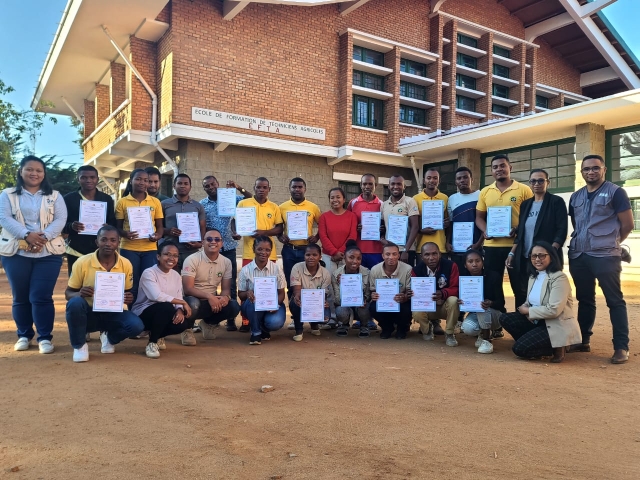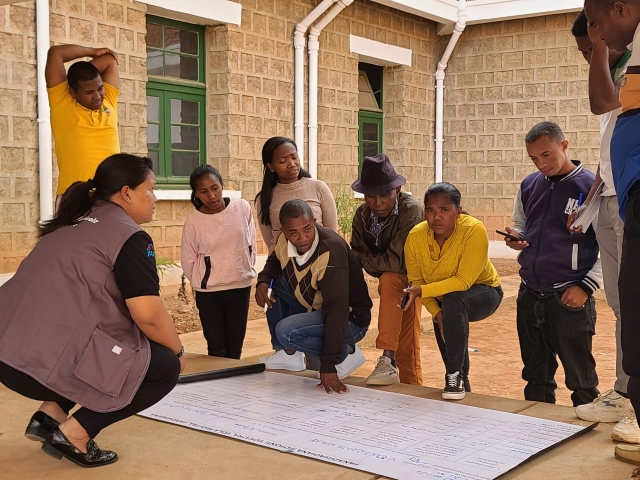
The SHEP program (Smallholder Horticulture Empowerment & Promotion) aims to transform agriculture into a market-oriented activity. From October 21 to 24, 2024, several staff members from Madagasikara Voakajy, along with representatives from local communities, had the opportunity to participate in training on this approach in Antananarivo.
This workshop, led by experts from JICA (Japan International Cooperation Agency) in partnership with the Ministry of Agriculture and Livestock, provided participants with an in-depth understanding of the SHEP concept, which promotes the “grow to sell” model.
SHEP approach: a tool for empowering independent farmers
Unlike other development programs, the SHEP approach does not provide direct financial or material support. Instead, it focuses on agricultural advisory services, helping farmers align their production with real market demands. The goal is clear: to empower smallholder farmers by providing them with tools and knowledge to become professional players in the agricultural sector.
The training emphasized that smallholders, who are often vulnerable to market fluctuations, must learn to anticipate demand by conducting their own market research and adapting to consumer expectations. For Malagasy farmers, many of whom practice subsistence farming, adopting this new model represents a significant opportunity to shift from family consumption to profitable production.
Participants ready to become promoters of the shep model
One of the strengths of this training lies in the multiplying effect it generates. The staff members of Madagasikara Voakajy and local community representatives trained over these four days are now tasked with promoting the SHEP approach in their respective regions. They are responsible for sharing the knowledge they acquired and supporting small farmers in improving their practices—not only in terms of yield but also in line with market demand.
This aligns perfectly with Madagasikara Voakajy’s strategy, which places particular emphasis on involving local communities in all of its conservation and sustainable development actions. By empowering farmers, the organization helps strengthen the economic resilience of rural populations while encouraging the sustainable management of natural resources.
A Combination of Theory and Practice
The SHEP training was divided into two parts: a theoretical component, which allowed participants to grasp the fundamentals of the approach, and a practical component, during which participants conducted real market research at the Andravoahangy market in Antananarivo. This hands-on experience enabled them to apply the theoretical lessons by directly analyzing the demand for various agricultural products, studying prices, and identifying business opportunities.
This pragmatic approach gives farmers an edge in maximizing their agricultural income by enabling them to produce what the market demands, rather than continuing to grow only what they are accustomed to cultivating.
Madagasikara Voakajy would like to express its gratitude to JICA and the Ministry of Agriculture and Livestock for their fruitful partnership and will continue to support local communities in spreading this innovative approach throughout the various regions of Madagascar where it operates.
Thanks to this training, we are confident that our local farmers will soon have the necessary skills to optimize their harvests, enhance the value of their products, and improve their livelihoods.




